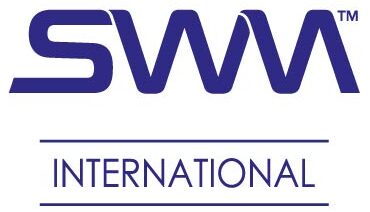Expertise
September 23, 2024
New achievement! ISO 22000 certification for Quimperlé's production site (France)
With increased regulatory and consumer scrutiny of single-use plastics, paper is emerging as a sustainable alternative in the packaging industry. In addition to being easily recyclable, paper can be used in a number of specialized food contact applications, including those requiring barrier properties. But to ensure that paper-based packaging is safe for consumers, a rigorous certification process is required at every stage of the supply chain. That’s where ISO 22000 certification comes in.

This globally recognized standard was established by the International Organization for Standardization (ISO) to ensure the highest level of safety management in food systems. This makes it a key proof point for many packaging manufacturers. “One of our customers asked us to obtain ISO 22000 certification at Quimperlé mill to help them develop a new packaging product,” explains Valérie Guillou, Global QMS Manager at SWM International. “We saw this as a good opportunity to demonstrate our commitment to the food contact packaging sector.”
The road to certification
With the initial request received in September 2023, the team has been working hard over the past year to implement the necessary frameworks and processes. These efforts have been organized according to the Hazard Analysis Critical Control Point (HACCP) methodology, which is designed to enable effective monitoring and mitigation of contamination risks. “ISO 22000 requires a comprehensive oversight approach that covers biological, physical, chemical, and allergenic risks,” explains Orlane Bodevin, Quality Management System Technician at Quimperlé. “To achieve this, we trained a dedicated team that’s now responsible for implementing and maintaining the best practices we’ve established.”
Cross-functional collaboration was vital to get this project off the ground, with colleagues from R&D, Production, Maintenance, Process, Quality, Health and Safety, Facilities, PCS and more all contributing their expertise. “We greatly appreciate their involvement in this project, which was key to achieving this important certification”. However, the scope of ISO 22000 also goes beyond enhanced hygiene precautions at the site itself. It also includes supply chain partners – such as raw material suppliers, and logistics and maintenance providers – who need to take the appropriate measures to eliminate the risk of contamination.
An ongoing process
To maintain certification, the French production site must be audited annually and recertified every three years. This process has a built-in element of continuous improvement. “Thanks to the governance structure and management system we’ve put in place, we’re well prepared to keep building on our certification success for years to come,” concludes Valerie. “Now that we’ve got the process up and running, it will be much easier to extend certification to new product lines and even new sites as needed in the coming years. And as portfolio diversification becomes an increasingly important part of our growth strategy, we look forward to working with our customers to meet their evolving compliance needs.”
Link to all SWM International’s certifications
